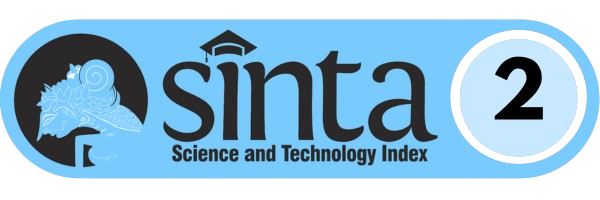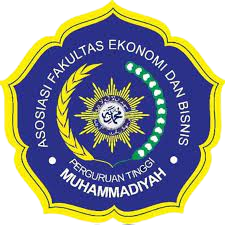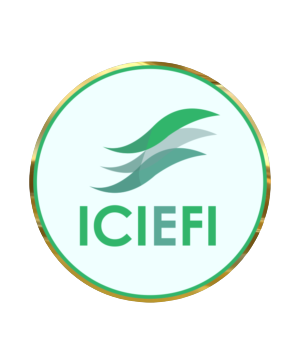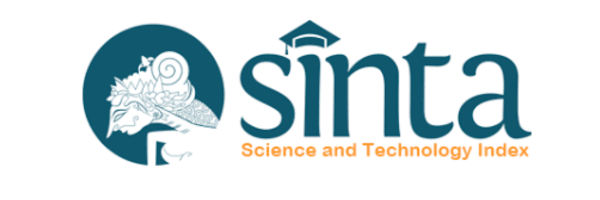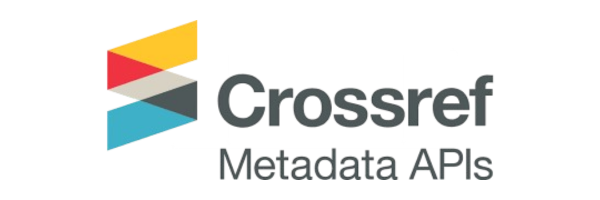Wakif's Behavior in Money Waqf: an Approach to Theory of Planned Behavior
DOI:
https://doi.org/10.24269/ekuilibrium.v16i1.2021.pp12-23Abstract The Indonesian nation is a country where the development of productive waqf is very potential, but the collection of productive waqf funds, especially cash waqf, has not been optimal. This is thought to be the behavior of the muslim community that does not understand well the development of cash waqf. Based on this phenomenon, this research was conducted to find empirical evidence of the Theory of Planned Behavior and religiosity in influencing the behavior of Muslim communities to conduct cash waqf in Indonesia. This study used a quantitative descriptive approach, data collection was carried out online using the google form facility, and data collected were 138 respondents to the questionnaire that had been distributed online. The results of this study found that attitudes, subjective norms, and values of religiosity were able to influence waqf behavior in making decisions to do cash waqf.
References
Arno, A. K. (2018). Wakaf Produktif sebagai Instrumen Kesejahteran Sosial dan Pemberdayaan Ekonomi Umat (Potensi Dan Tantangan). 1(2), 41–51. https://doi.org/10.13140/RG.2.2.20642.27841
Atabik, A. (2014). Strategi Pendayagunaan dan Pengelolaan Wakaf Tunai di Indonesia. Jurnal Zakat dan Wakaf, 1(2), 315–335.
Ayyubi, & Lubis. (2015). Filosofi Ekonomi Syariah. IPB Press.
Chatterjee, A., & Kulakli, A. (2015). An Empirical Investigation of the Relationship between Emotional Intelligence, Transactional and Transformational Leadership Styles in Banking Sector. Procedia - Social and Behavioral Sciences, 210, 291–300. https://doi.org/10.1016/j.sbspro.2015.11.369
Fahmi, A., & Sugiarto, E. (2018). Pelatihan dan Pemanfaatan Literasi Informasi E-Wakaf untuk Pengelolaan. Abdimasku, 1(2), 55–62.
Faisal, M. (2020). Sikap, Norma Subjektif, Religiusitas, dan Partisipasi terhadap Wakaf Tunai. Li Falah: Jurnal Studi Ekonomi dan Bisnis Islam, 4(2), 235. https://doi.org/10.31332/lifalah.v4i2.1548
Fauziah, S., & El Ayyubi, S. (2019). Faktor-faktor yang Memengaruhi Persepsi Wakif terhadap Wakaf Uang di Kota Bogor. Al-Muzara’ah, 7(1), 19–31. https://doi.org/10.29244/jam.7.1.19-31
Fishbein, M., & Ajzen, L. (1975). Belief, Attitude, Intention and Behavior: an Introduction to Theory and Research,.
Hanifah, N., & Ridla, R. (2015). Pengaruh Kualitas Pelayanan, Citra Lembaga, dan Religiusitas terhadap Minat Muzakki untuk Menyalurkan Zakat Profesi. Jurnal Komunikasi, 20(2).
Haqqy, A., BusainiI, H., & Rois, I. (2017). Perilaku Wakif dalam Mewakafkan Tanahnya untuk Kesejahteraan Masyarakat. Jurnal Ekonomi Dan Bisnis Islam UIN Imam Bonjol, 2(1), 97–110.
Harahap, S. (2011). Prospek Wakaf Uang di Indonesia. Al-Awqaf Jurnal Wakaf dan Ekonomi Islam, 4(4), 88–98.
Hasbullah, N. A., Khairi, K. F., & Ab. Aziz, M. R. (2016). Intention to Contribute in Corporate Waqf: Applying the Theory of Planned Behaviour. UMRAN - International Journal of Islamic and Civilizational Studies (EISSN: 2289-8204), 3(1). https://doi.org/10.11113/umran2016.3n1.39
Hasim, K., Lubis, D., & Ali, K. M. (2016). Analysis of Factors Affecting the Level of Cash Waqf Raising in Indonesia (Analytical Network Process Approach) (Analisis Faktor-Faktor yang Memengaruhi Penghimpunan Wakaf Uang di Indonesia (Pendekatan Analytical Network Process)). Jurnal Al-Muzara’ah Vol.4, No.2, 2016, 4(2), 127–141.
Huda, N., Anggraini, D., Rini, N., Hudori, K., & Mardoni, Y. (2014). Akuntabilitas sebagai sebuah Solusi Pengelolaan Wakaf. Jurnal Akuntansi Multiparadigma, 5(3). https://doi.org/10.18202/jamal.2014.12.5036
Huda, N., Rini, N., Mardoni, Y., Anggraini, D., & Hudori, K. (2017). Manajemen Pengelolaan Wakaf di Indonesia Timur. EKUITAS (Jurnal Ekonomi dan Keuangan), 20(1), 1. https://doi.org/10.24034/j25485024.y2016.v20.i1.2035
Iman, N., Santoso, A., & Kurniawan, E. (2020). Online based Waqf Management System in Indonesia: A New Model in Management of Waqf Administration. International Journal of Innovation, Creativity and Change, 10(11), 164–180.
Karim, A. A., & Sahroni, O. (2015). Riba, Gharar dan Kaidah-Kaidah Ekonomi Syariah: Analisis Fikih dan Ekonomi. PT. Raja Grafindo Persada.
Kusumawardani, L. (2015). Pengelolaan Wakaf Uang dalam Bentuk Reksa Dana Syariah (suatu Tinjauan Hukum Pengelolaan Wakaf Uang dalam Bentuk Reksa Dana Syariah di Badan Wakaf Indonesia). Al-Awqaf Jurnal Wakaf dan Ekonomi Islam, 8(1), 36–50.
Nafis, M. C. (2011). Cash Waqf For Social Security. Al-Awqaf Journal on Waqf and Islamic Economic, 11(2), 66–76.
Nizar, A. (2014). Faktor-Faktor yang Mempengaruhi Persepsi Wakif tentang Wakaf Uang. Esensi: Jurnal Bisnis dan Manajemen, 4(1), 21–36. https://doi.org/10.15408/ess.v4i1.1953
Osman, A. F., & Muhammed, M. O. (2017). Measuring a Cash Waqf Giving Behavior among Muslim Donors in Malaysia : A Theory of Planned Behavior Approach using Structural Equation Modeling. The Journal of Muamalat and Islamic Finance Research, 14(2), 39–63. https://doi.org/10.12816/0045779
Osman, A. F., Mustafa Omar Mohammed, & Aiman Fadzil. (2016). Factor Influencing Cash Waqf Giving Behavior : a Revised Theory of Planned Behavior. Journal of Global Business and Social Entrepreneurship (GBSE), 1(2), 12–25.
Pitchay, A. A., Meera, A. K. M., & Saleem, M. Y. (2015). Factors Influencing the Behavioral Intentions of Muslim Employees to Contribute to Cash-Waqf through Salary Deductions. Journal of King Abdulaziz University, Islamic Economics, 28(1), 63–100. https://doi.org/10.4197/Islec.28-1.3
Rizal, H., & Amin, H. (2015). Perceived Ihsan , Islamic Egalitarian and Islamic Religiosity Towards Charitable giving of Cash Waqf. 8(4), 669–685.
Selasi, D., & Muzayyanah, M. (2020). Wakaf Saham sebagai Alternatif Wakaf Produktif pada Perkembangan Ekonomi Syariah di Indonesia. TAWAZUN : Journal of Sharia Economic Law, 3(2), 155. https://doi.org/10.21043/tawazun.v3i2.7932
Shukor, S. A., Anwar, I. F., Aziz, S. A., & Sabri, H. (2017). Muslim attitude Towards Participation in cash WAQF: Antecedents and Consequences. International Journal of Business and Society, 18(S1), 193–204.
Shulthoni, M., & Saad, N. M. (2018). Waqf Fundraising Management: A Conceptual Comparison between Traditional and Modern Methods in the Waqf Institutions. Indonesian Journal of Islam and Muslim Societies, 8(1), 57–86. https://doi.org/10.18326/ijims.v8i1.57-86
Teo, T., & Schaik, P. van. (2012). Understanding the Intention to use Technology by Preservice Teachers: an Empirical Test of Competing Theoretical Models. International Journal of Human-Computer Interaction, 28(3), 178–188. https://doi.org/10.1080/10447318.2011.581892
Ubaid, A. (2014). Analisis Hasil dan Metode Fundraising Wakaf Uang Badan Wakaf Indonesia (BWI). Jurnal Bimas Islam, 7(4), 605–632.
Umam, K. (2016). Konsep Uang Islam: antara Uang Komoditas atau Uang Fiat. Islamic Economics Journal, 2(1). https://doi.org/10.21111/iej.v2i1.972
Utami, A. F., & Ismail, M. (2014). Implementasi Pengelolaan Wakaf Tunai ( Studi pada Baitul Maal Hidayatullah & Yayasan Dana Sosial Al-Falah ). Jurnal Ilmiah Mahasiswa FEB, 3(1), 1–16.
Downloads
Published
How to Cite
Issue
Section
License
Retained Rights/Terms and Conditions of Publication
1. As an author you (or your employer or institution) may do the following:
- make copies (print or electronic) of the article for your own personal use, including for your own classroom teaching use;
- make copies and distribute such copies (including through e-mail) of the article to research colleagues, for the personal use by such colleagues (but not commercially or systematically, e.g. via an e-mail list or list server);
- present the article at a meeting or conference and to distribute copies of the article to the delegates attending such meeting;
- for your employer, if the article is a ‘work for hire’, made within the scope of your employment, your employer may use all or part of the information in the article for other intra-company use (e.g. training);
- retain patent and trademark rights and rights to any process, procedure, or article of manufacture described in the article;
- include the article in full or in part in a thesis or dissertation (provided that this is not to be published commercially);
- use the article or any part thereof in a printed compilation of your works, such as collected writings or lecture notes (subsequent to publication of the article in the journal); and prepare other derivative works, to extend the article into book-length form, or to otherwise re-use portions or excerpts in other works, with full acknowledgement of its original publication in the journal;
- may reproduce or authorize others to reproduce the article, material extracted from the article, or derivative works for the author's personal use or for company use, provided that the source and the copyright notice are indicated, the copies are not used in any way that implies RCEPM-LIPI endorsement of a product or service of any employer, and the copies themselves are not offered for sale.
All copies, print or electronic, or other use of the paper or article must include the appropriate bibliographic citation for the article's publication in the journal.
2. Requests from third parties
Although authors are permitted to re-use all or portions of the article in other works, this does not include granting third-party requests for reprinting, republishing, or other types of re-use. Requests for all uses not included above, including the authorization of third parties to reproduce or otherwise use all or part of the article.
3. Author Online Use
- Personal Servers. Authors and/or their employers shall have the right to post the accepted version of articles pre-print version of the article, or revised personal version of the final text of the article (to reflect changes made in the peer review and editing process) on their own personal servers or the servers of their institutions or employers without permission from Universitas Muhamamdiyah Ponorogo, provided that the posted version includes a prominently displayed Universitas Muhamamdiyah Ponorogo copyright notice and, when published, a full citation to the original publication, including a link to the article abstract in the journal homepage. Authors shall not post the final, published versions of their papers;
- Classroom or Internal Training Use. An author is expressly permitted to post any portion of the accepted version of his/her own articles on the author's personal web site or the servers of the author's institution or company in connection with the author's teaching, training, or work responsibilities, provided that the appropriate copyright, credit, and reuse notices appear prominently with the posted material. Examples of permitted uses are lecture materials, course packs, e-reserves, conference presentations, or in-house training courses;
- Electronic Preprints. Before submitting an article to an Ekuilibrium: Jurnal Ilmiah Bidang Ilmu Ekonomi, authors frequently post their manuscripts to their own web site, their employer's site, or to another server that invites constructive comment from colleagues. Upon submission of an article to Ekuilibrium: Jurnal Ilmiah Bidang Ilmu Ekonomi, an author is required to transfer copyright in the article to Economy Faculty Universitas Muhammadiyah Ponorogo, and the author must update any previously posted version of the article with a prominently displayed Economy Faculty Universitas Muhammadiyah Ponorogo copyright notice. Upon publication of an article by the Universitas Muhammadiyah Ponorogo, the author must replace any previously posted electronic versions of the article with either (1) the full citation to the work with a Digital Object Identifier (DOI) or link to the article abstract in Ekuilibrium: Jurnal Ilmiah Bidang Ilmu Ekonomi journal homepage, or (2) the accepted version only (not the final, published version), including the Economy Faculty Universitas Muhammadiyah Ponorogo copyright notice and full citation, with a link to the final, published article in journal homepage.
4. Articles in Press (AiP) service
Economy Faculty Universitas Muhammadiyah Ponorogo may choose to publish an abstract or portions of the paper before we publish it in the journal. Please contact our Production department immediately if you do not want us to make any such prior publication for any reason, including disclosure of a patentable invention.
5. Author/Employer Rights
If you are employed and prepared the article on a subject within the scope of your employment, the copyright in the article belongs to your employer as a work-for-hire. In that case, Economy Faculty Universitas Muhammadiyah Ponorogo assumes that when you sign this Form, you are authorized to do so by your employer and that your employer has consented to the transfer of copyright, to the representation and warranty of publication rights, and to all other terms and conditions of this Form. If such authorization and consent has not been given to you, an authorized representative of your employer should sign this Form as the Author.
6. RCEPM-LIPI Copyright Ownership
It is the formal policy of Economy Faculty Universitas Muhammadiyah Ponorogo to own the copyrights to all copyrightable material in its technical publications and to the individual contributions contained therein, in order to protect the interests of the Economy Faculty Universitas Muhammadiyah Ponorogo, its authors and their employers, and, at the same time, to facilitate the appropriate re-use of this material by others. Economy Faculty Universitas Muhammadiyah Ponorogo distributes its technical publications throughout the world and does so by various means such as hard copy, microfiche, microfilm, and electronic media. It also abstracts and may translate its publications, and articles contained therein, for inclusion in various compendiums, collective works, databases and similar publication.
7. Licensing Terms
Ekuilibrium is licensed under a Creative Commons Attribution-ShareAlike 4.0 International License.
Permissions beyond the scope of this license may be available at https://journal.umpo.ac.id/


